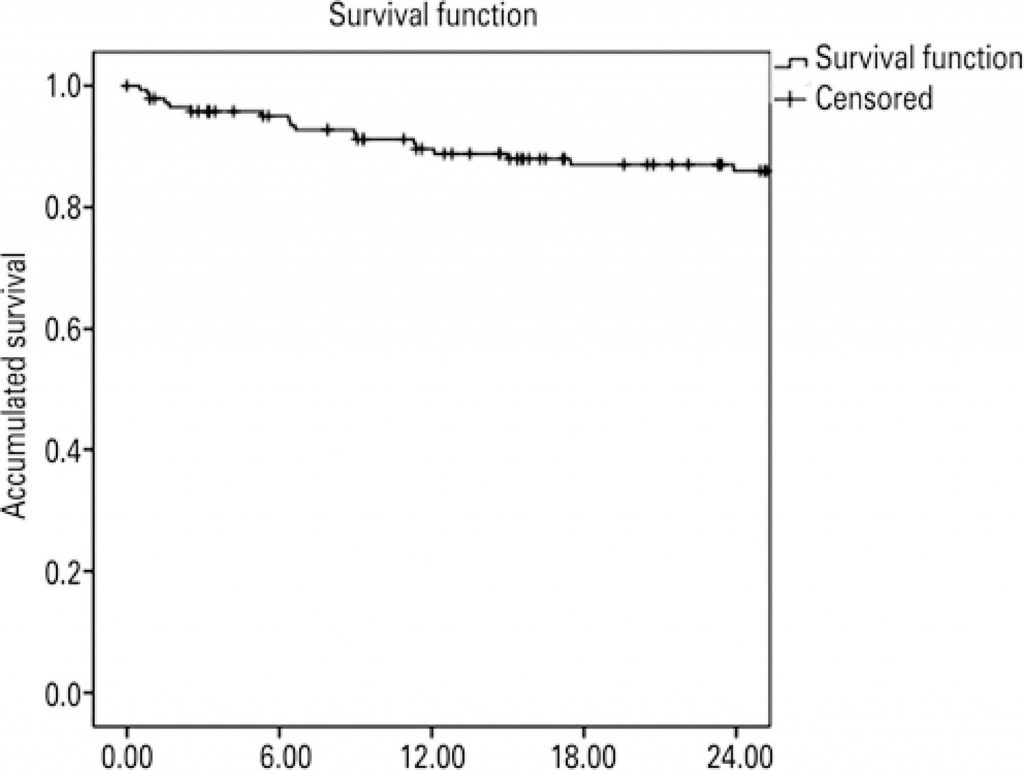einstein (São Paulo). 17/Mar/2022;20:eAO6474.
Epidemiological characteristics and adherence of a cohort of elderly people with HIV/AIDS in the Public Health System
DOI: 10.31744/einstein_journal/2022AO6474
ABSTRACT
Objective
To characterize the epidemiological profile of patients aged 50 years or older diagnosed as HIV/AIDS, in a Specialized Service of the Public Health System.
Methods
A retrospective cohort study using secondary data from medical records in the period 2014 to 2018. Sociodemographic and clinical characteristics, and features related to treatment adherence were organized in a database. Quantitative variables were expressed as mean (or median) ± standard deviation (or interquartile range), and categorical variables expressed as number and percentage of patients. The Kaplan-Meier method was applied to assess the probability of overall specific survival.
Results
Of the 241 initially eligible patients, 149 patients were evaluated, registering 19 deaths in the studied period. There was a predominance of males aged 50-59 years, with severe immunodeficiency upon admission (29.7%), and with a CD4+ T lymphocyte count below 200 cells in 62 (46.3%) of patients. Elderly people aged 61 or over were more adherent. There was an increase in the CD4+ T lymphocyte count by an average of 139.63 in the first 6 months, and 50.51 from the first 6 months to 12 months of follow-up, with an average increase in the first 12 months of 157.63 cells. Specific overall survival in the period was 85%.
Conclusion
Patients older than 50 years had an immune response and no viral load detection in the 12-month period, deserving further studies to improve survival.
148

